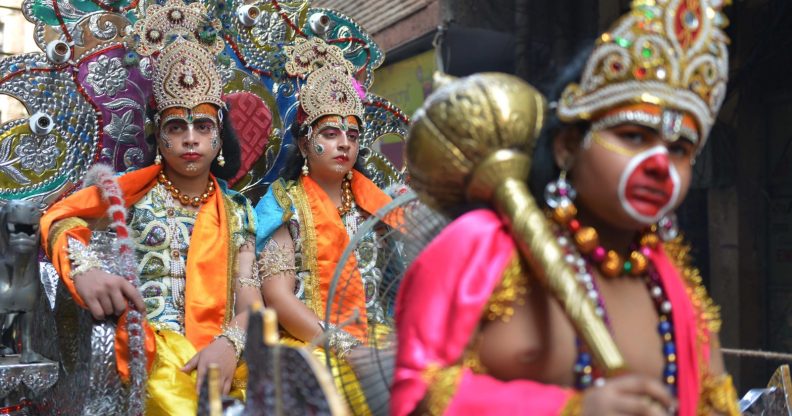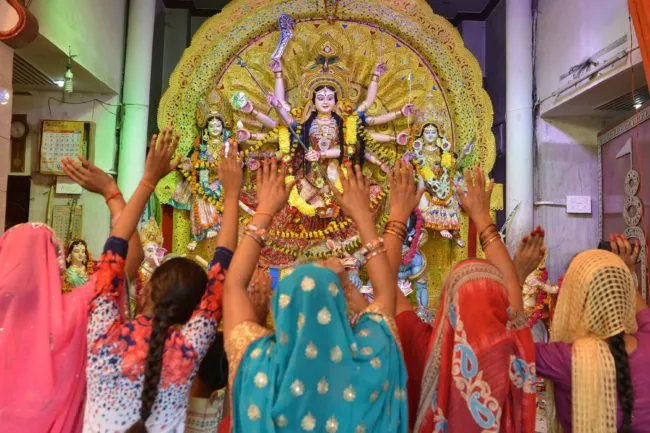Hindus have a long and surprising history of supporting transgender people, says expert on Thought of the Day

Indian devotees dressed as Hindu deities Rama (C), Laxman (L)and Hanuman (R) participate in a Hindu religious procession on the occasion of the Ram Navmi festival in Amritsar on September 29, 2017.
A Vaishnav Hindu teacher and theologian has appeared on BBC Radio 4’s Thought of the Day detailing how Hinduism has historically supported transgender people “long and surprising approach to gender identity.”
Akhandadhi Das, who offered his thoughts during the four-minute segment of the Today programme which meditates on topics of spirituality, said that the religion had a long and inclusive history of love and acceptance when it comes to transgender people.
In Hinduism, Das said, Ayurvedic texts say that people are born into three different gender types – with the third gender known as “tritiya prakriti.”
“Our Hindu tradition has a long and surprising approach to gender identity,” said Das.
“Ayurvedic texts say that people are born into one of three gender types, male, female and in Sanskrit, the third type. This was considered natural and linked to the vagueries of human reincarnation, as we alternate back and forth between male and female in a prolonged series of lives, we carry subconscious impressions and tendencies with us.
So in Hindu terms, we may carry a body that doesn’t match our gender outlook. The term tritiya prakriti indicates that gendered distinctions should not be based on biology or genitalia, but rather on psychology.

(NARINDER NANU/AFP/Getty Images)
In vague terms, the individual defines their own identity and how they wish to express that through clothes, names, sexuality and marriage. Behaviour rather than physical change solidified internal gender choice.
A broad study of the text reveals a society that was amazingly open, accepting and protecting of the diversity of trtiya prakriti lifestyles. Even so, social and familiar prejudices have always been prevalent, certainly with the later mixing of cultures and colonial interests, life has become extremely tough for a transgender person in India,” he said.
Referring to a passage in which the avatar of Vishnu, Rama, asked men and women to relocate to a different area and abandon their area, the Prince realised that the tritiya prakriti had not followed him. When he queried them on why they had not, they said that as they were not men nor women, the rule didn’t apply to them.
It is due to this that the third gender is honoured in spite of colonial prejudices regarding homosexuality and transgender people.
“Rama was pleased by their devotion and blessed them that their words would always come true. That reputation has remained in modern times. Families still invite transgender people to bless a child at its name-giving.
Commentators suggest that Rama’s benediction indicates that even during the inclusivity of ancient Ayurvedic society, it was never easy to state publicly one’s inner gender identity. Those who did speak their truth deserved to have their words believed, and their wishes fulfilled,” added Das.

